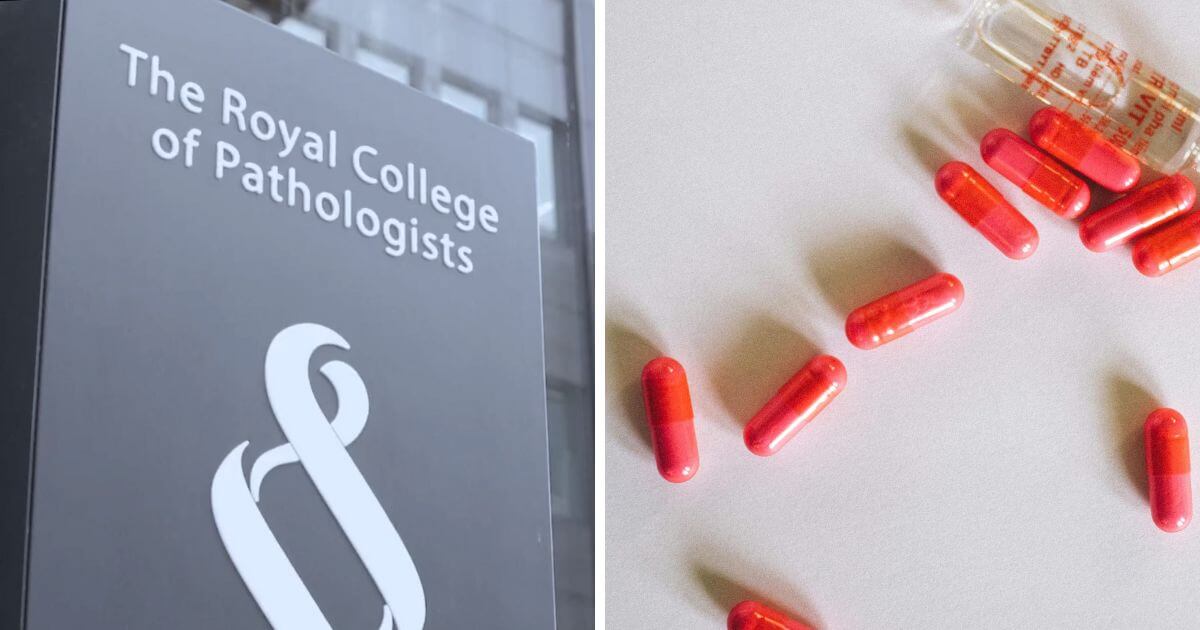This week, another key medical body, the Royal College of Pathologists (RCPath), has voiced concerns over Kim Leadbeater’s assisted suicide Bill, leading to further calls for MPs to vote against the Bill.
The RCPath, which is the lead college for medical examiners, made it clear that is has no position on the ethical issues relating to assisted suicide, but that it was unable to support clause 35 as drafted in the current version of the Bill due to concerns about the role medical examiners would have after an assisted suicide has taken place, if the assisted suicide Bill were to become law. These concerns follow strong criticism of the Bill from the Royal College of Psychiatrists (RCPsych) and the Royal College of Physicians (RCP).
In the Bill, clause 35(1) currently states that a person who dies by assisted suicide is “not to be regarded as having died in circumstances” that require an inquest by a coroner. This means that under Kim Leadbeater’s Bill, the deaths of those who die by assisted suicide would not be automatically referred to a coroner, as is normally required in cases of unnatural deaths or those caused by the administration of drugs.
Expressing concerns relating “to the involvement of medical examiners after an assisted death has taken place”, Dr Suzy Lishman CBE, the Royal College of Pathologists’ Senior Advisor on Medical Examiners, said “[T]he College cannot support clause 35 as drafted in the current version of the Bill”. The Royal College of Pathologists instead recommended the involvement of a coroner, saying “[D]eaths following assisted dying should be notified to the coroner, just as other deaths following the administration of drugs, prescribed or not, must be”.
Highlighting “the lack of adequate safeguards in the Bill for vulnerable people”
Lishman also highlighted “the lack of adequate safeguards in the Bill for vulnerable people”, saying “Notification to the coroner following an assisted death would ensure independent judicial review, which is particularly important given the concerns raised by many individuals, organisations and medical royal colleges about the lack of adequate safeguards in the Bill for vulnerable people”.
“Lawyers, not doctors, are the most appropriate professionals to review these deaths”.
Lishman pointed out that “The medical examiner system was implemented to detect problems with medical care, not to identify discrepancies or malintent in the legal process required for assisted deaths”, and highlighted the “significant” amount of “training and resourcing” that would be required to take on this new role, which risked “potentially taking medical examiners away from their current important role”.
She added “Coronial referral for assisted deaths would be in line with current regulations, with all deaths due to a medical intervention or medicinal product being notified”.
Abandonment of “robust safeguard” queried
The Royal College of Pathologists’ concerns about the Bill were shared by Becky Protopsaltis, NHS South West Regional medical examiner officer, who said “I have had concerns since this bill was first heard that a) any death where the use of medication has assisted death should go to the Coroner, and b) that not doing so places a potential burden on medical examiners that has not previously been allowed for”.
Similar concerns about safeguards were shared by Judge Thomas Teague KC, chief coroner of England and Wales from 2020 to 2024. In a letter to The Times last month, Teague wrote “The coroner’s statutory duty to investigate all unnatural deaths, irrespective of whether any misfeasance is alleged, provides a powerful deterrent against wrongdoing”.
Pointing out that Clause 35 “would exempt” those who died by assisted suicide from this statutory duty of a coroner investigation, Teague warned that the effect of this would be to “magnify, rather than diminish, the obvious risks of deception and undue influence”. Teague commented in another letter “Since the coroner’s jurisdiction affords a powerful deterrent against misfeasance, the public may wonder why the Bill proposes to abandon such a robust safeguard”.
Yuan Yi Zhu, an Assistant Professor of International Relations and International Law at Leiden University, also complained about the lack of a coroner’s involvement, saying “The exclusion of coroners from the assisted suicide bill was decried by many of us, as it was indeed by the former chief coroner. Kim Leadbeater and her allies chose to ignore these concerns, as they did on virtually every other major issue”.
Pathologists’ concerns follow “bombshell statement” about “deficiencies” in Leadbeater Bill
The Royal College of Pathologists is the latest medical body to raise significant concerns about the Bill, following recent strong criticism from the Royal College of Psychiatrists (RCPsych) and the Royal College of Physicians (RCP). In a move described by journalist Dan Hitchens as “an absolute bombshell statement”, the RCPsych said “With too many unanswered questions about the safeguarding of people with mental illness, the College has concluded that it cannot support the Bill in its current form”.
In a position statement released just days ahead of the debate at Report Stage in May, the RCP said that, after the completion of the Bill’s Committee Stage, “there currently remain deficiencies that would need addressing to achieve adequate protection of patients and professionals”.
“MPs should listen to the experts and vote against this Bill”
A number of the Bill’s critics highlighted the medical bodies’ concerns and lack of support, and called on MPs to vote down the Bill. Following the RCPath’s statement, Labour MP Jess Asato called on her fellow MPs to “listen to the experts”, saying “Yet another professional group, the Royal College of Pathologists, has said they can’t support the section of the bill relevant to their work. MPs should listen to the experts and vote against this Bill”.
Echoing Asato’s call, Naz Shah, Labour MP for Bradford West, also highlighted the growing opposition to the Bill by experts, saying “The assisted dying bill is not safe. We MUST listen to the experts. First [it] was [the Royal College of Psychiatrists]. Then it was [the Royal College of Physicians] [a]nd now [The Royal College of Pathologists]”.
Nikki da Costa, former Director of Legislative Affairs at 10 Downing Street, said “Another Royal College says it cannot support a measure in the Bill for which its members (medical examiners) will be responsible for. We are now 11 days out from Third Reading. Bill supporters have given this issue – like so many others – very little consideration”.
Commenting on the fact “yet another medical body that takes no official position on [assisted suicide] comes out against the bill as it currently stands”, Kevin Yuill, interim Director of Humanists Against Assisted Suicide and Euthanasia (HAASE), said “Time to reject this bill”.
Dr Philip Murray, Assistant Professor in Law at Robinson College, Cambridge University, said “Imagine being an MP thinking you know better than three royal colleges and voting for this Bill”.
Further criticism from medics about “deeply flawed Bill”
In addition to the concerns raised by the Royal Colleges, the Bill has received further criticism from medical professionals, with a letter signed by around 1,000 doctors being sent to MPs urging them to vote against the assisted suicide Bill. The doctors criticised the “deeply flawed bill”, saying “This bill will widen inequalities, it provides inadequate safeguards and, in our collective view, is simply not safe”.
“This is the most important piece of healthcare legislation for 60 years and we urge you to listen to the doctors who would have to deliver the consequences of this deeply flawed Bill”.
The doctors added “It is our opinion that this Bill poses a real threat to both patients and the medical workforce, and we urge you to vote against it”.
Rebecca Smith MP has tabled an amendment that would restore the oversight of coroners. Smith’s amendment “ensures that deaths from assisted dying will still fall within the coroner’s duty to investigate deaths under section 1 of the Coroners and Justice Act 2009”.
Spokesperson for Right To Life UK, Catherine Robinson, said “As yet another key medical body voices concerns about the reckless Leadbeater Bill, it is clear that this dangerous legislation is not fit for purpose”.
“With very little time left before Third Reading, it is vital that MPs listen to the concerns shared by these highly credible medical bodies, as well as the clear warning from over 1,000 doctors, who said the ‘deeply flawed’ Bill ‘poses a real threat to both patients and the medical workforce’”.
“MPs must be aware of this threat and vote against this disastrous Bill at Third Reading”.












